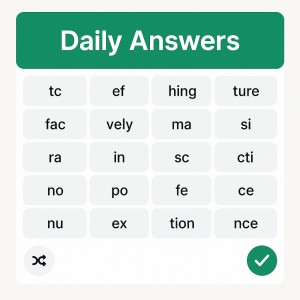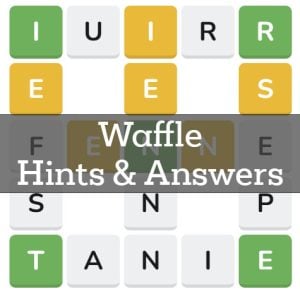Looking for the answers and hints for the Strands puzzle from June 22, 2025? You’ve come to the right place! Every day, we archive the solutions to help you check your work or get that final clue you need. Below you will find all the answers for yesterday’s Strands challenge.
Strands Hints for June 22, 2025
Here are all the official hints to guide you toward the solution.
- Something is awry in the air, and it's not just a faint note. Begin with what you might exclaim when this sensation is overwhelmingly negative!
- The quintet of terms you're looking for might all describe the aftermath of leaving gym clothes festering in a locker for too long.
- These words are far from roses, each intensifying the essence of what's not pleasant, from merely noticeable to downright nostril-assaulting.
- Think of the gradual increase of intensity you might experience from entering a room with a forgotten garbage bag to standing beside a weeks-old seafood dumpster in summer.
- As you navigate the pungent puzzle landscape, remember your scents and sensibility, and consider synonyms that elevate "bad smell" to a more vivid and visceral experience.
Spoiler Warning!
The final answers are below. Stop scrolling now if you want to solve it yourself!
Strands Answer for June 22, 2025
Here is the final, official answer for the Strands puzzle that was released on June 22, 2025.
Today’s NYT Strands Answers
The answers for today's New York Times crossword puzzle Strands section revolve around the theme of "Fragrant Abuse." The words listed are all adjectives that are commonly used to describe unpleasant or offensive odors. The connection between the words and the theme captures the negative aspect of fragrances or smells that are far from pleasant. Let's explore each word in relation to the theme:
- SMELLY: A general term used to signify that something has a strong, unpleasant odor. It doesn't specify the source or type of odor but conveys that the smell in question is noticeable and disagreeable.
- PUNGENT: This word suggests an intense, sharp, or biting odor that can be so strong that it stings the nose. Pungent smells often come from chemicals, certain foods (like onions or garlic), or decay.
- REEKING: To reek of something means to emit a strong, unpleasant smell. The word often implies that the odor has permeated the surrounding area and is hard to escape from.
- FOUL: Implies a disgusting and offensive odor, often associated with spoilage, contamination, or something rotten.
- RANK: Similar to foul, rank is used to describe an overpoweringly unpleasant and stale smell often associated with decay or lack of hygiene.
- MALODOROUS: A formal term that simply means bad-smelling or having a bad odor. This term can be applied to a broad range of situations where an unpleasant smell is present.
The pangram THAT STINKS ties the theme together by providing a common expression that encapsulates the notion of something smelling bad. A pangram is a unique word or phrase in crossword puzzles that includes every letter of the alphabet at least once. In the context of this theme, THAT STINKS also serves as an opinionated comment on the broadly negative nature of the smells described by the listed words.
Overall, today's theme of "Fragrant Abuse" is a playful way to group together terms that are related to negatives scents and odors, highlighting the colorful language we use to describe the less appealing aspects of our olfactory experiences.
Read More Daily Game Answers
Check out the answers and hints for our other popular daily word games and puzzles.






